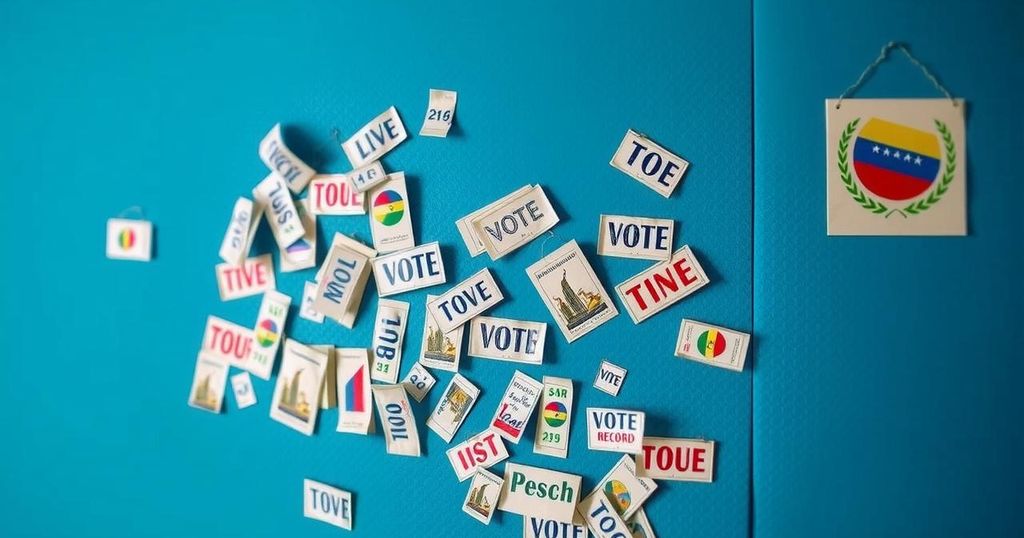The UN’s Human Rights Committee has mandated Venezuela to protect voting tallies from the disputed July elections. The opposition claims these tallies show their candidate, Edmundo González, won over Nicolás Maduro. The investigation, prompted by allegations of fraud, underscores Venezuela’s political turbulence and Maduro’s contested legitimacy.
The United Nations’ Human Rights Committee has issued an order to the Venezuelan government, mandating that it refrain from destroying the voting tallies from the contentious presidential elections held on July 28. This collection of official data, which details votes from individual polling stations, has become integral to the ongoing dispute regarding the election’s true outcome. The National Electoral Council (CNE), which is closely aligned with the incumbent government, declared President Nicolás Maduro as the victor but has yet to substantiate this claim with the corresponding voting tallies.
On the other hand, the opposition, supported by accredited election monitors, has compiled and made public over 80% of these tallies, arguing that they demonstrate that Edmundo González emerged as the legitimate winner. The UN committee, comprised of 18 independent experts, is currently investigating allegations of electoral fraud stemming from a complaint lodged by a Venezuelan voter through an international law firm.
In the wake of this investigation, the committee has demanded that Venezuela maintain its election voting data. Despite months of pressure on the CNE to release these tallies, the council continues to withhold them, attributing the delay to an alleged hacking incident during the election. In a stark contrast, opposition parties swiftly uploaded the tallies they gathered to a public website, suggesting that González secured 67% of the votes compared to Maduro’s 30%.
Maduro has repudiated these figures as fraudulent and continues preparations for his supposed third term inauguration on January 10, despite a rising number of nations—including the United States, Italy, and Argentina—recognizing González as the president-elect. The international law firm IHR Legal described the case as “pioneering” and “historic,” indicating that it could potentially lead to the committee’s confirmation that Maduro is not the legitimate president of Venezuela.
The situation in Venezuela has been rife with political contention following the recent presidential elections. The National Electoral Council, which is perceived to be biased towards the government, declared Maduro the winner without providing adequate evidence in the form of the voting tallies. This lack of transparency has fueled allegations of electoral fraud, and the opposition claims to have sufficient evidence demonstrating their candidate’s electoral victory, leading to intervention by the United Nations.
The UN’s directive to Venezuela emphasizes the importance of electoral integrity and transparency in the aftermath of disputed elections. With the opposition asserting a clear mandate for Edmundo González, the situation presents a significant challenge for President Maduro, who faces increasing international isolation. This scenario underlines the necessity for rigorous monitoring of democratic processes to uphold human rights and free governance.
Original Source: www.bbc.com






